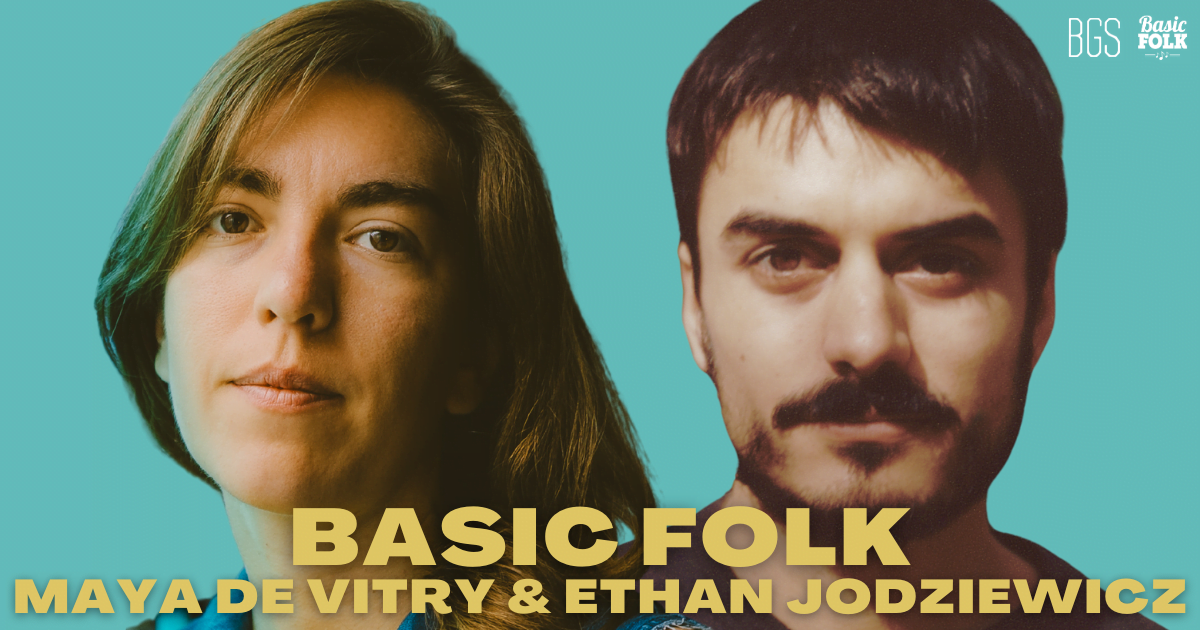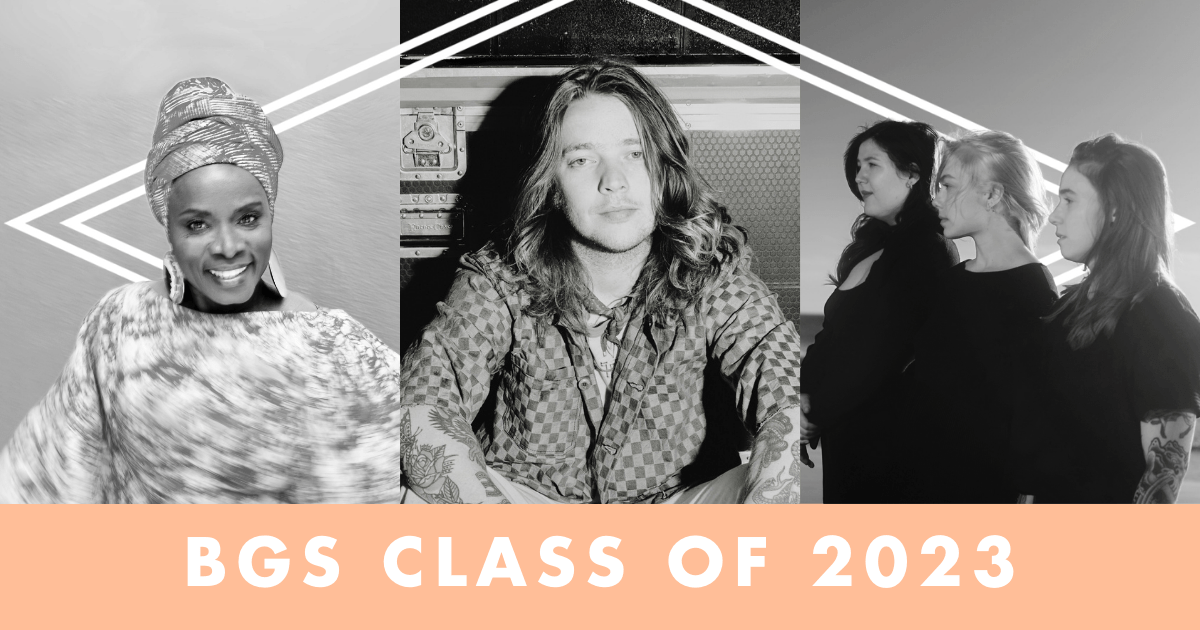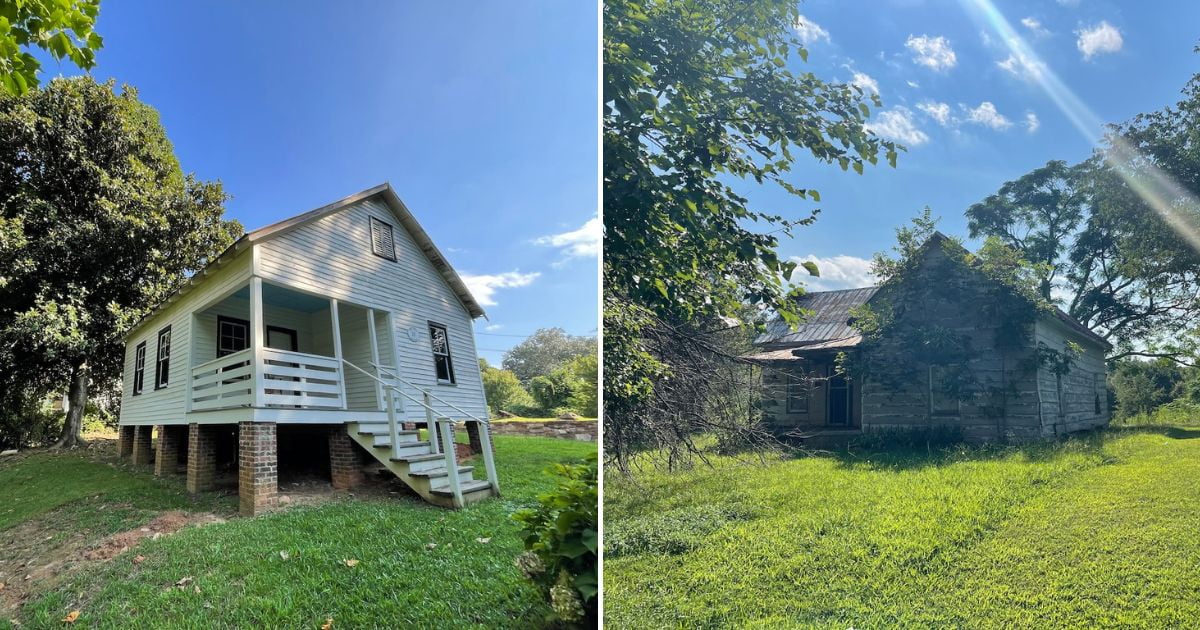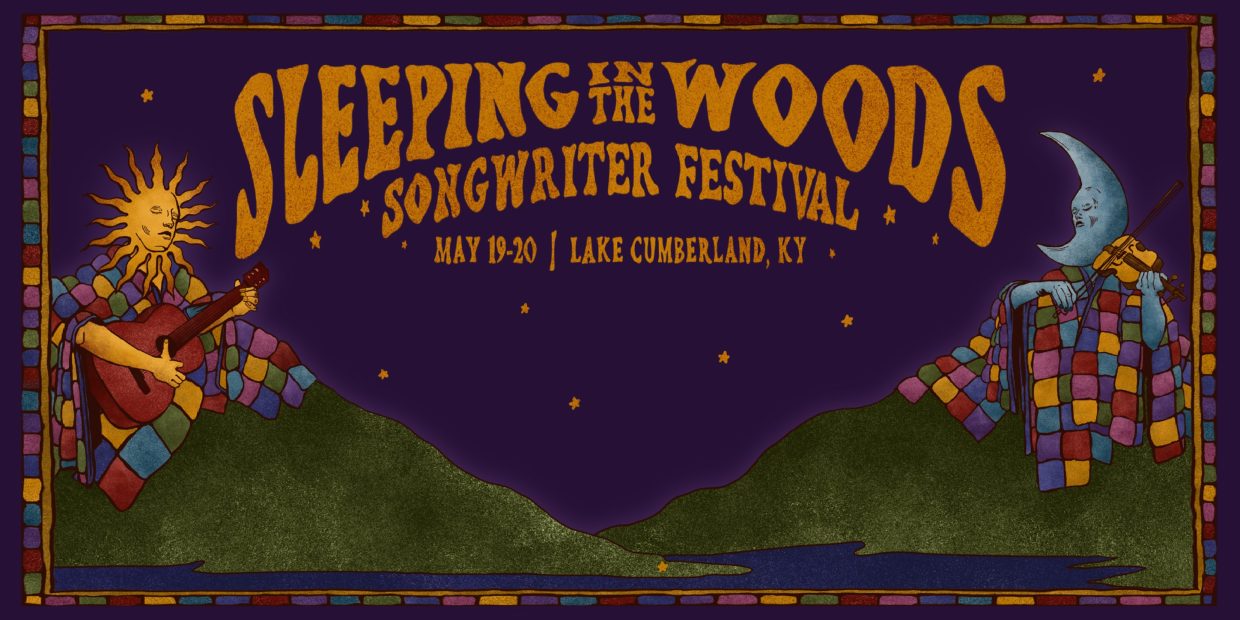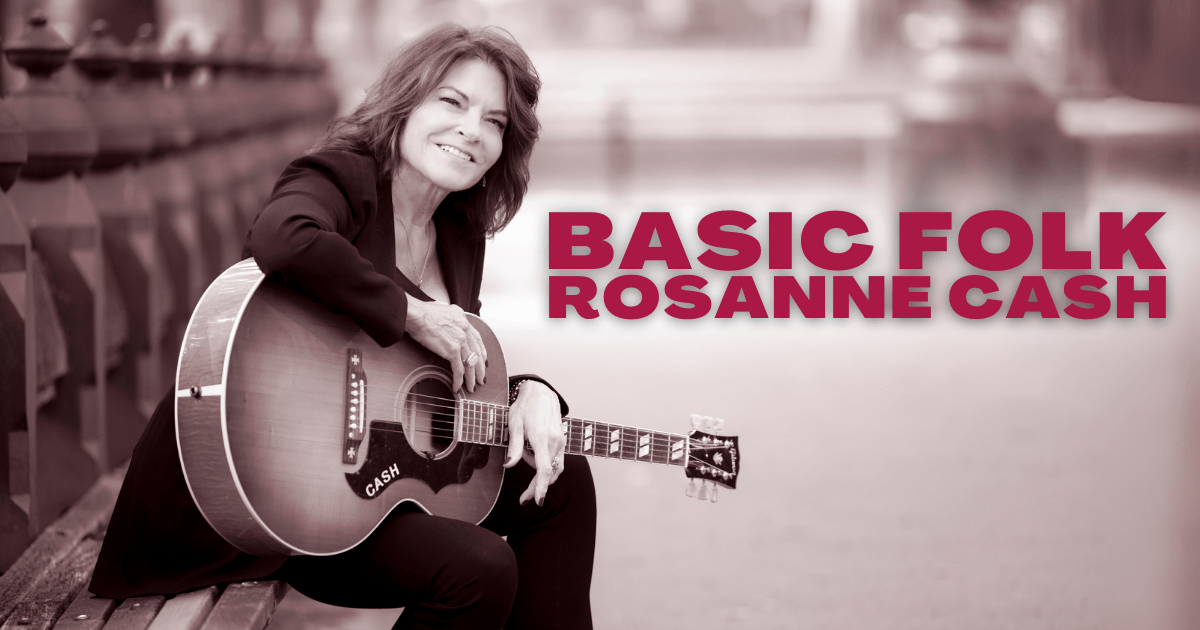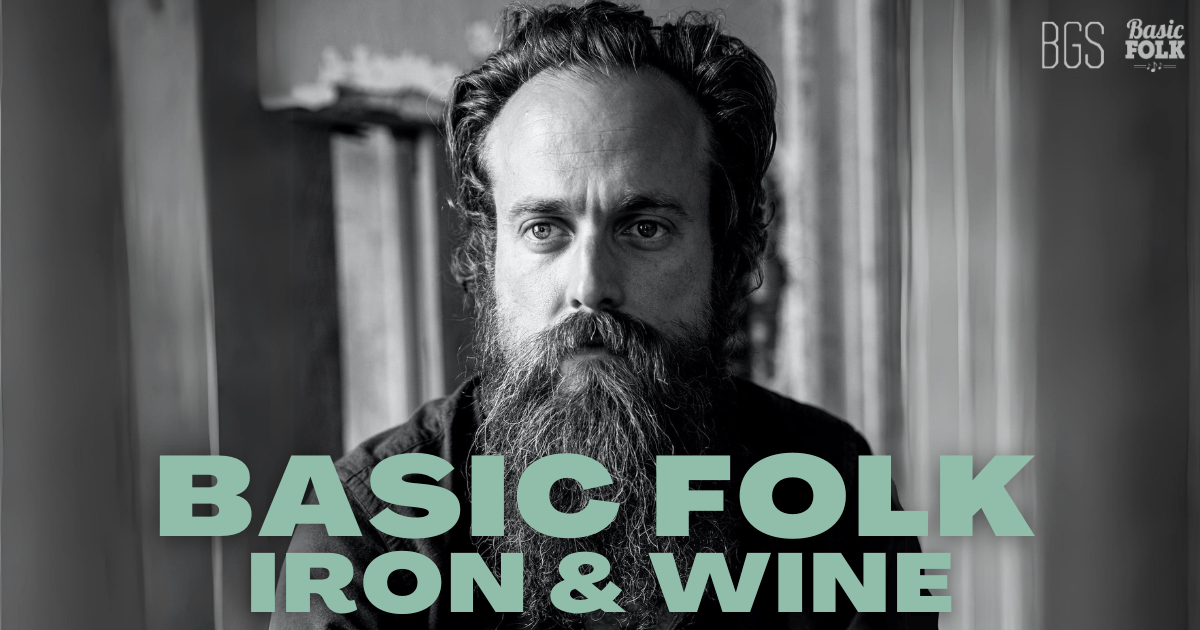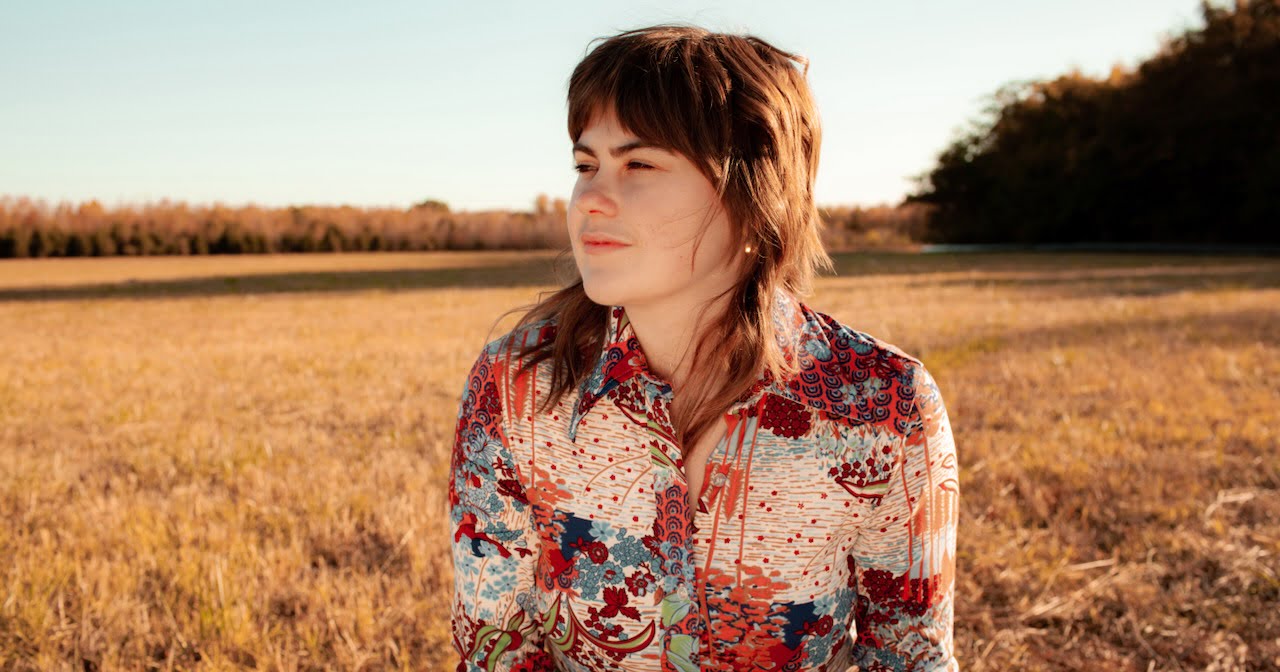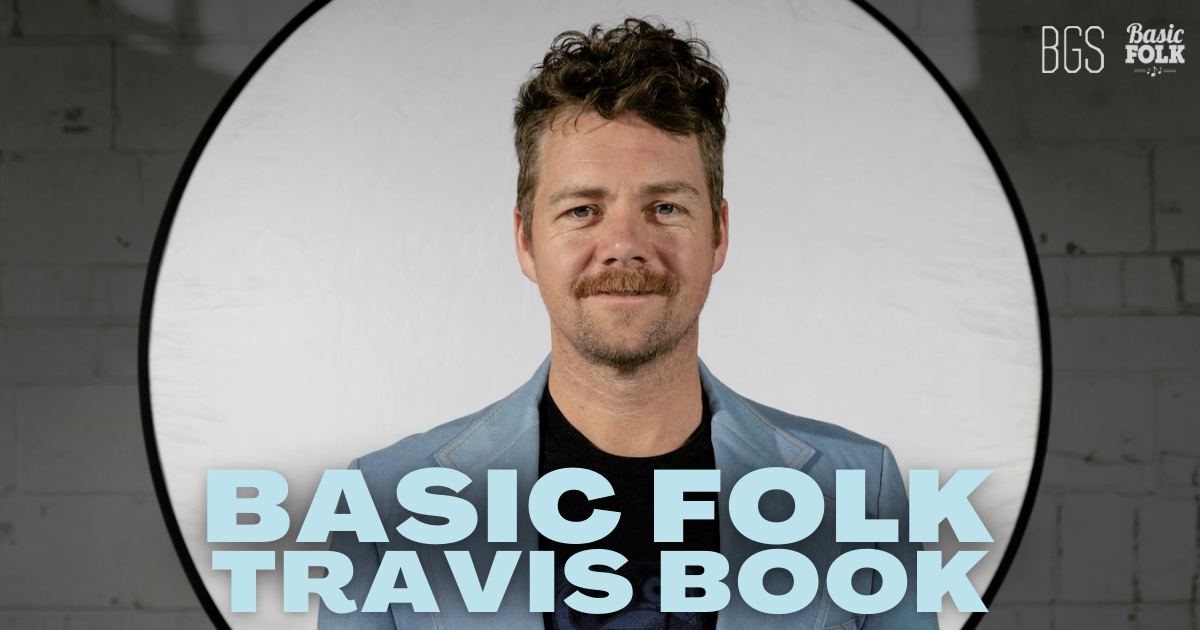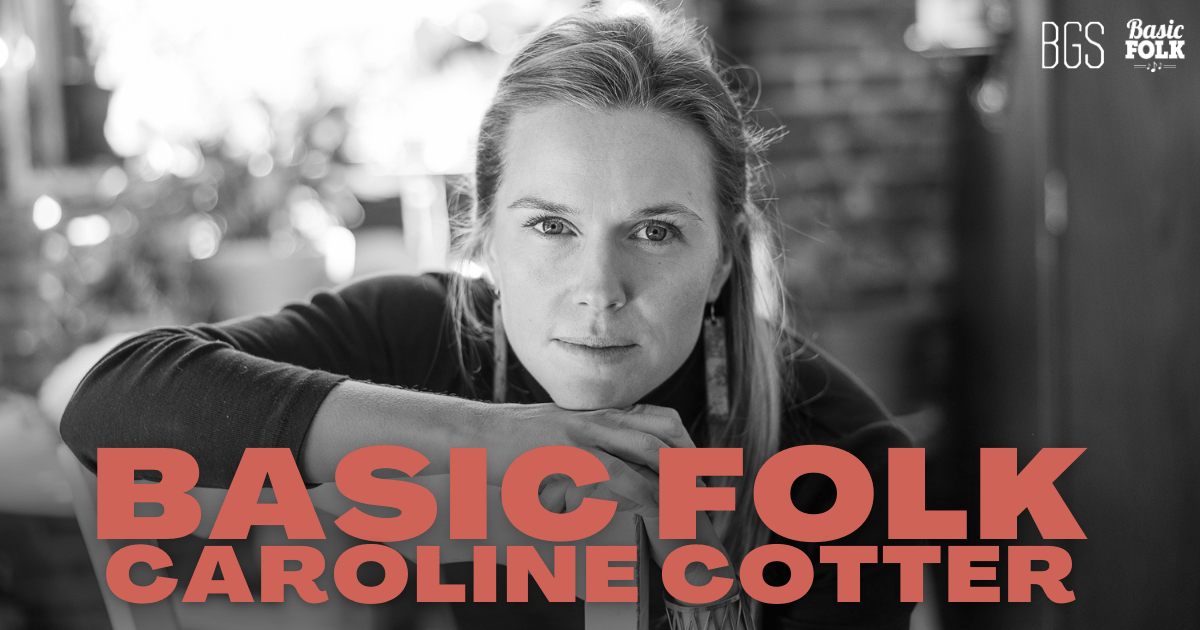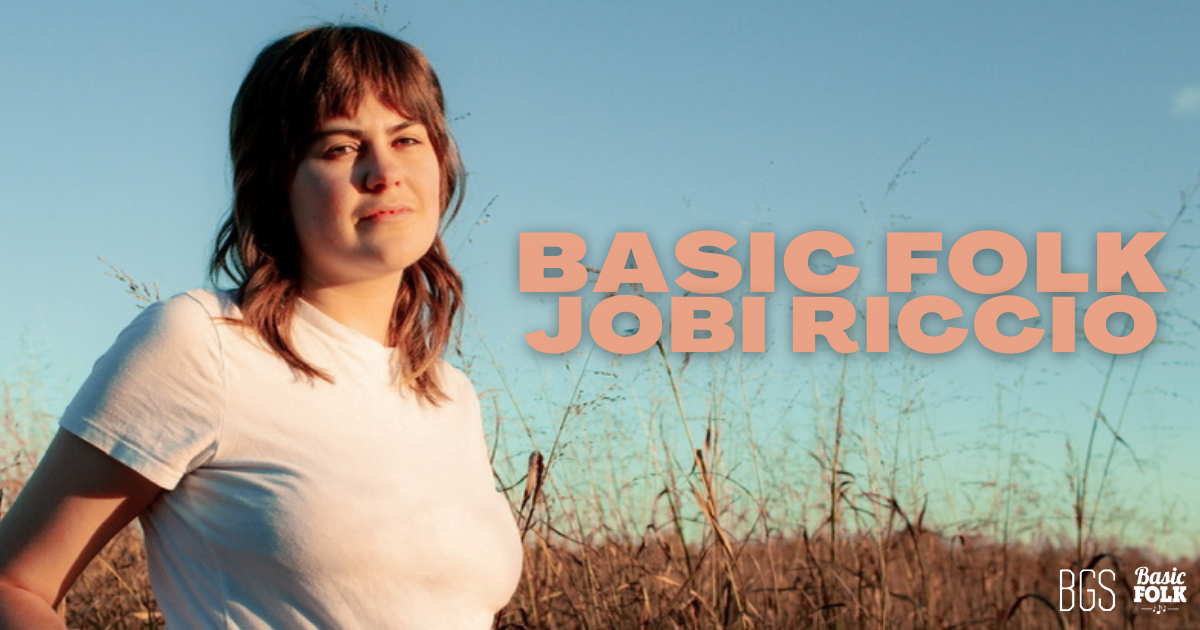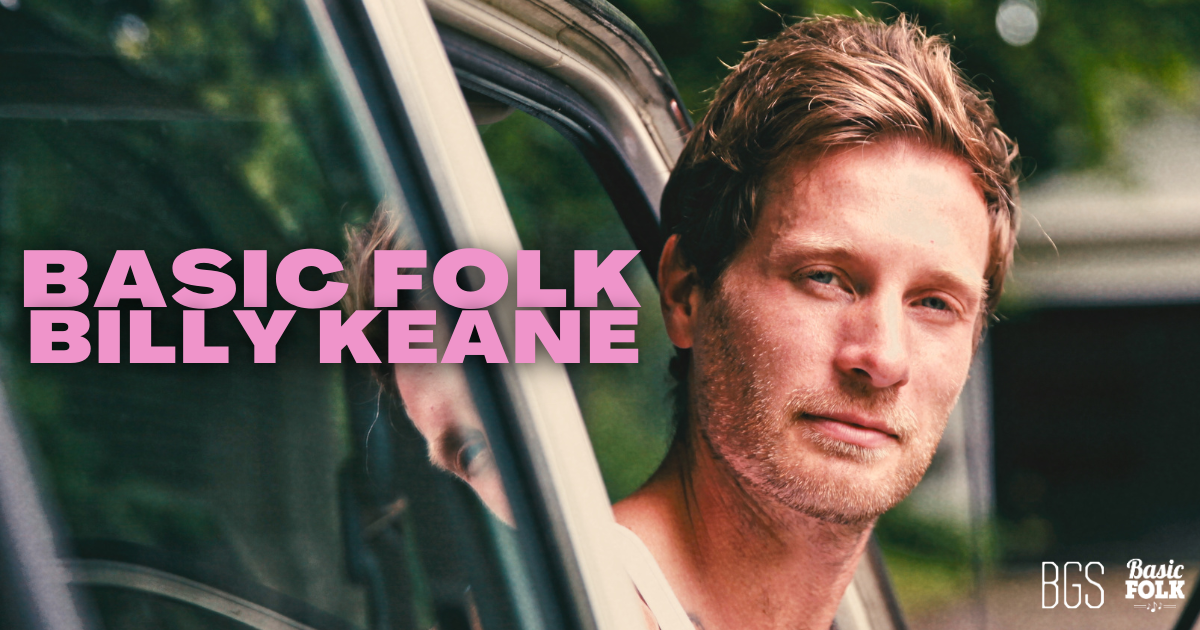What is Good Country? A great question, to be sure. It’s a new brand coming from BGS in 2024 that will feature all good country. A bi-weekly email newsletter that’s curated and one-of-a-kind, Good Country will feature long reads, playlists, videos, interviews, and more all highlighting the best of country music from across the roots music landscape.
But what is good country? A much more nebulous question! As one wise social media commenter put it, “You’ll believe it when you hear it.” We posed the “What is good country?” question to our BGS contributors and the year-end list they’ve put together is striking in its depth, breadth, inclusion – and it’s full of good country, certainly. From Tanner Adell’s boundary-pushing, pop-inflected country trap to Dean Johnson’s retro, genuine sounds; from Jelly Roll to Kara Jackson, “Fast Car” to “Lavender Country,” good country has been all around us all year.
Whatever good country is to you, we hope you’ll find plenty of it below, within our list of country favorites from across 2023. And, we hope these albums, songs, and performances whet your appetite for plenty more Good Country, coming from BGS in early 2024. Sign up now to be one of the first to enjoy our upcoming newsletter, direct to your email inbox.
Tanner Adell, Buckle Bunny
Before we forget, “Old Town Road” was not only a novelty, but a masterpiece of a country song, and a reminder that the South has always been a vulgar mix – the more vulgar, the more forward-thinking, and the more complexly, political. In a rejoinder to stupid, butch truck songs – and a specific “fuck you” to people like Aldean – Adell’s Buckle Bunny is filled with all kinds of specific geographic detail (see the chorus to “Bake It,” which goes: “Brown sugar caramel/ Ding ding Patti LaBelle/ Sweet potato pussy pie/…”) in service of sexual and political liberation.
On the highlight of the album, “FU 150,” she owns the truck, the means of production, and any man who trifles with either her or her truck. This has been a year of ambivalent women pushing against dumb men (See Pillbox Patti, Elle King, Tigirlily Gold, Kelsea Ballerini, Hannah Dasher, etc.), but this might be the best time I had listening to music this year, and considering how much we had to endure, can’t we have a little bit of fun? – Steacy Easton
“Fast Car” – Luke Combs, via Tracy Chapman
It’s painfully obvious how long overdue it is for Tracy Chapman to be recognized, in this way, as a pivotal American songwriter – plus, the absurdity of her being the first Black person ever to win CMA’s Song of the Year. Still, it’s worth celebrating just how great it is to hear “Fast Car” on the radio again, and for a whole new legion of fans to discover it. – Amy Reitnouer Jacobs
Sierra Ferrell, “Fox Hunt” and “The Garden”
We would be remiss if we failed to include the astoundingly radiant Sierra Ferrell from our inaugural year-end round-up for Good Country. From her baffling multi-instrumentalism to her gilded attire to the floral ornamentation of her microphone, Ferrell has captivated the hearts of troves of roots music fans across the globe. Most recently, she graced us with her single, “Fox Hunt,” and “The Garden,” an original song recorded for the soundtrack of The Hunger Games: The Ballad Of Songbirds & Snakes.
Each release is enchanting in its own right; “Fox Hunt” corrals listeners to the dance floor with its sturdy backbeat and fiery fiddles, while “The Garden” delivers a gorgeous, melancholic waltz full of gentle mourning and fertile metaphor. Ferrell’s capacity to encapsulate such a wide range of emotions through the many textures and tonalities of her talent casts her as a superlative country artist of this day and age. We anticipate, with great impatience, the release of her next album, due to arrive sometime in early 2024. – Oriana Mack
Amanda Fields, What, When and Without
Whether singing with a hard-driving bluegrass band (like 2019’s “Brandywine”), or atop a pedal steel and gut-strung upright bass, Amanda Fields’ voice cuts right through the mix to deliver thoughtful and resonating lyrics. This is the case on What, When and Without, Fields’ first full-length album, and her first project in the country music realm. Produced by Megan McCormick, the album is a master class in taste, musical restraint, and great singing and songwriting. Fields’ Appalachian-inflected vocal, rested on this sonic foundation, says good country about as clearly as it can. You’re going to want to put on headphones for this one! – Thomas Cassell
Paisley Fields at The Knitting Factory, October 15
What is obvious is that Paisley Fields is an important songwriter and a frontperson of immense talent. What only became clear to me at the Knitting Factory’s new Baker Falls, New York City location on October 15th is that Paisley is also an angel. It might have been the reflection of stage lights on sequin, or the fiery righteousness of blues-rocker “Burn This Statehouse Down” (a Mya Byrne co-write), but I left the show convinced of their divine purpose as a prophet of cosmic country. During the encore, I joined the band on stage for an impromptu tribute to our dear departed auntie Patrick Haggerty and forgot all the words to “Lavender Country,” but the whole room sang, “Y’all come out, come out” until I remembered. – Lizzie No
Kara Jackson, Why Does the Earth Give Us People to Love?
You might find Kara Jackson’s manner frank and plain-spoken. That’s a trap. Yes, the young Chicago-raised singer, songwriter, and poet (she was the US Youth Poet Laureate for 2019-20) puts much on the surface, but it’s slippery, shifting ground. It’s right there in the title of her first full album, Why Does the Earth Give Us People to Love?, a question with no answer. She contemplates such things as if on a walk in the park – wandering, meandering. The genre-defiant music, crafted with collaborators Kaina Castillo, Sen Orimoto, and Nnamdi Ogbonnaya, meanders with her, ducking down shadowy side paths, hiding behind trees, dancing in light shimmering through leaves – a short banjo coda here, a swelling choir there. And still questions with no answers, this love and life stuff. In the title song and spiritual center, she laments a friend’s death: “Why does the earth give us people to love, then give them a sickness that kills?” It’s a trap, but it’s going to be fascinating to watch this exceptional artist try to sort it out. – Steve Hochman
Jelly Roll, CMA’s New Artist of the Year
My favorite country artist of the year was Jason DeFord, better known as Jelly Roll. He enjoyed a monster year both commercially and industry wide, winning 2023 CMA New Artist of the Year honors and topping all male country vocalists overall with five nominations. He also earned three CMT Music Awards, with his powerhouse anthem “Son Of A Sinner” – in my view a more explosive and dynamic tune than “Need A Favor.” His performance of the latter with Wynonna Judd and “Love Can Build A Bridge” with K. Michelle during the CMA Awards broadcast were among the program’s highlights, as well as being emblematic of his performing charisma and adaptability. But the documentary, Jelly Roll: Save Me (available on Hulu), documented his troubled teen past and redemption from incarceration and addiction, as well as the many current philanthropic activities that’s seen him use his stardom to aid and inspire others. It represents Jelly Roll’s larger societal impact beyond the music world. He’s also combined a love for classic country, as well as folk and even hip-hop, into a distinctive, identifiable and magnetic sound that made his 44+ city Backroad Baptism Tour one of the year’s best. – Ron Wynn
Dean Johnson, Nothing for Me, Please
Some of us release music relentlessly from a young age and have to get comfortable with the public watching us learn and grow on the job. Others, such as Seattle’s Dean Johnson, wait until they are fifty to release a debut album and then absolutely knock it out of the park from song one. When a friend sent me “Shouldn’t Say Mine,” I assumed it was from a ‘60s era country artist that everyone else knew about but that I had somehow missed. Wouldn’t you know, it’s from Dean Johnson’s Nothing for Me, Please, released this very year on Mama Bird Records. Mama Bird releases some of the best West Coast roots music, including other favorites of mine, like Anna Tivel and Courtney Marie Andrews, and this new release by Johnson will be making waves for years to come. – Rachel Baiman
Brennen Leigh, Ain’t Through Honky Tonkin’ Yet
You know what? Thank goodness Brennen Leigh ain’t through honky tonkin’ yet, someone needs to keep the neon lights burning and the juke box bumpin’ – and we’re glad that someone is Leigh. An album for the lonesome boot scooters, for the belt buckles longing for another to rub up against, Leigh’s prowess as a country alchemist is on fully display, combining sounds from the Midwestern plains, east and central Texas, and Nashville’s lower Broadway refracted through East Nashville and Madison. It’s old country, “real” country, alt country, outlaw country, and more, but most importantly it’s honest, true – and it’s danceable. What’s more traditional than country music that’ll draw tears and flat-footing? The cherry on top of all of it is the picking – you can hear the influence of Leigh’s bluegrass upbringing in every track, like Skaggs in his radio hits heyday or Vince Gill’s bluegrass tinged albums. – Justin Hiltner
Ruby Leigh on The Voice
16-year-old Foley, Missouri native Ruby Leigh moved both Reba McEntire and Gwen Stefani to tears on her first live show appearance on The Voice, when she performed a version of McEntire’s own “You Lie,” from the Voice coach’s 1990 album Rumor Has It. Leigh’s vocals are strong and beautiful, and slightly more developed since her September audition for the show. Then, she performed Patsy Montana’s Country & Western classic, “I Want Be a Cowboy’s Sweetheart,” and got all four judges to turn their chairs – The Voice’s equivalent of a unanimous vote.
The crowds seem to love Leigh as much as the celebrity coaches do. In that clip, with Leigh decked out in red and black Western wear, audience members held up red hair signs to indicate that Leigh should pick McEntire as her coach, which she astutely did. Since her television debut, Leigh has racked up thousands of followers and hundreds of supportive comments on Facebook and other social media platforms — all while performing a super classic repertoire and sound. She even yodels! It’s hard not to love Leigh’s moxy, and it’s just as exciting to see people getting thrilled about country music again. Here’s hoping Leigh continues a winning streak on The Voice, and helps folks see what made this genre so good in the first place. – Lonnie Lee Hood
Mipso, Book of Fools
Mipso has never been entirely bluegrass so much as bluegrass-adjacent, and the North Carolina quartet’s sixth album finds them farther from conventional roots music than ever. But it’s in service to an artistic identity all their own, with lush pop tones and minor-key vibes predominating. As always, Mipso’s most recognizable sonic signature is the dual lead-vocal approach between Libby Rodenbough’s atmospheric dreaminess and Joseph Terrell’s plainspoken drawl. When they come together to harmonize on “Carolina Rolling By,” it’s truly heavenly. The true leap forward on Book of Fools, however, is Terrell’s guitar, which is every bit up to the standards of the singing. It’s jittery and angular on “Radio Hell,” moody on “I Wait For Your Call,” and jagged enough on “Broken Heart/Open Heart” to live up to a title like that. – David Menconi
Lizzie No, “The Heartbreak Store”
Lizzie No’s “The Heartbreak Store” isn’t just a catchy country tune, it’s a lifeline for the heartbroken. Inspired by a transformative tour with queer country trailblazer Patrick Haggerty, the video embodies a message of belonging and acceptance through line dancing. Country music often overlooks queer voices, however Lizzie’s anthem becomes a resonant declaration, echoing the ethos of unity and visibility. With every note, it stitches a musical tapestry of compassion, offering solace and celebration for those who’ve felt the pain of heartbreak, yet hope of community. In under three minutes, it becomes a powerful testament to resilience and love. – Cindy Howes
Jobi Riccio, Whiplash
We’re at last reaching a point where queer creators in roots music are being enabled to offer their identities not as the sole complication or subversion of country norms in their music, but as just one of many inputs that wrinkle and challenge ideas of what country is and to whom it can belong. Singer-songwriter Jobi Riccio has had a breakneck year, with seemingly endless momentum piling up behind her stellar debut, Whiplash. Where the first press releases and official narratives around the album centered a “rainbow cowgirl” story, as critical mass continued to grow behind this set of songs, one could sense Riccio intentionally carving out space for their agency among that momentum. Carefully and deliberately, Riccio has re-centered focus away from reductive “rainbow cowgirl” constructions and toward what matters most: The music.
The music is certainly what deserves the focus, with queerness infused throughout, as if just one of Riccio’s own claims to the “outlaw” movement or as a purposeful snare for normative country expectations. Because these songs are straight-ahead good country – there’s a touch of kd lang’s approach, or the Chicks’, or Indigo Girls’ – Riccio’s identity is still indelible, it shines on every single track. It needs no artificial spotlight, or to be considered monolithic. As they discuss class, image, consumption, heartbreak, restlessness, and so much more, queerness is just one of the many entrancing, complicated threads begging to be pulled as you canter along with Whiplash. – Justin Hiltner
Jordyn Shellhart, Primrose
Those who enjoy the confessional aspects of country music – but crave an unexpected sound and some humanistic insight – should check out Jordyn Shellhart. An emerging singer-songwriter who released Primrose, her album debut in 2023, she stands boldly apart for a singular voice and crystalline roots-pop style, with equally-exceptional lyrics. Whether breezily defying a cultural convention, delivering a mic-drop romantic kiss-off, rhetorically destroying the clueless cruelty of a teenage boy or dissecting her own mental wellness (or lack thereof), her songs are filled with nuance and sharp, straight-to-the-bone hooks, twisting and contorting along the often irregular path of real life. With the power to make a crowd of jaded journos cry, but very little exposure, she’s almost criminally under-appreciated – although we could fix that. – Chris Parton
Photo Credit: Lizzie No by Cole Nielsen; Brennen Leigh by Brooke Cooper; Kara Jackson by Lawrence Agyei.

